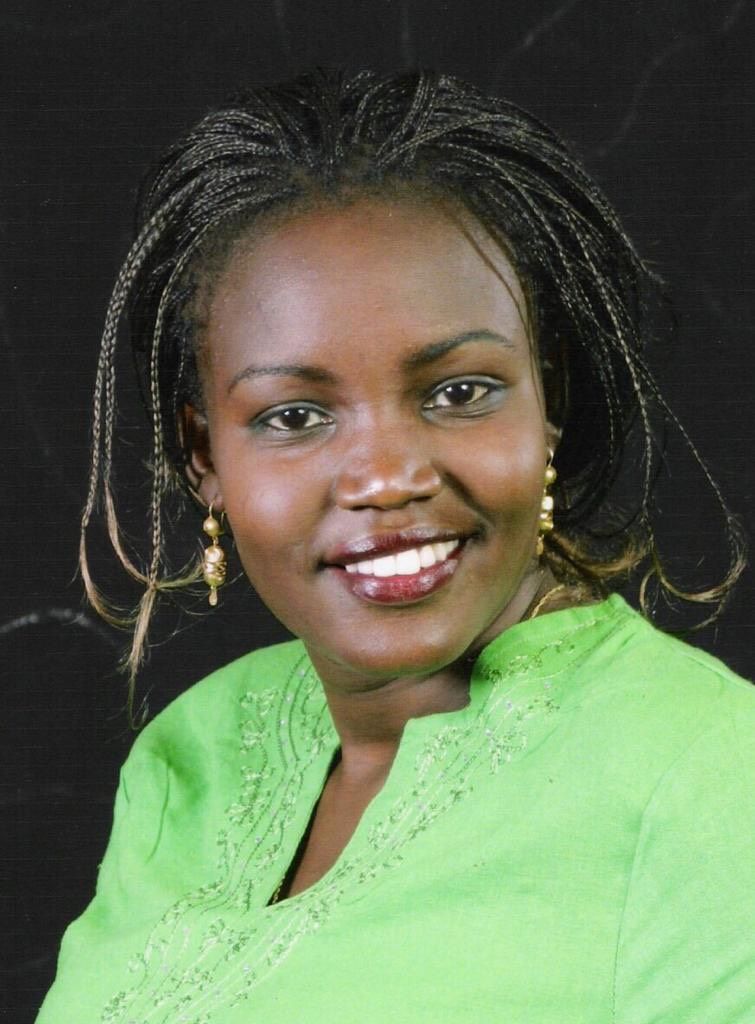Water and sanitation are critical to sustainable development. They underpin economic growth, poverty reduction, and environmental sustainability, and as such, the 2000 agenda for sustainable development has a goal specifically dedicated to water.
The SDGs are a set of 17 sustainable development goals covering sustainable economic, social, and environmental development themes, agreed upon by Governments in 2015. Sustainable Development Goal 6 is on clean water and sanitation and aims to ensure the availability and sustainable management of water and sanitation for all by 2030.
Women play a very important role in the provision, management, and safeguarding of water. Together with children they often bear the primary responsibility for water collection. They spend around 6 hours a day collecting water.
In Africa, women walk up to 3.7 miles a day to collect water. Women and girls living without a toilet spend around 266 million hours each day to find a place to go. Globally, a third of all schools lack access to safe water and sanitation resulting in girls dropping out of school. Every 90 seconds a child dies from a water related disease.
Fifty percent (50%) of South Sudanese people have access to basic drinking water, 30-50% of water facilities are non-functional at any point in time, and only 10 % of the population has access to basic sanitation. Weak water sector governance, limited funding and funding absorption capacity, human resource constraints, and limited data for decision-making are among the major drivers of low access rates.
Only 10% of the population has access to safely managed and basic service sanitation. Drinking dirty and contaminated water leads to waterborne diseases such as cholera and other diarrheal diseases, which persists as a leading cause of death among children in the country.
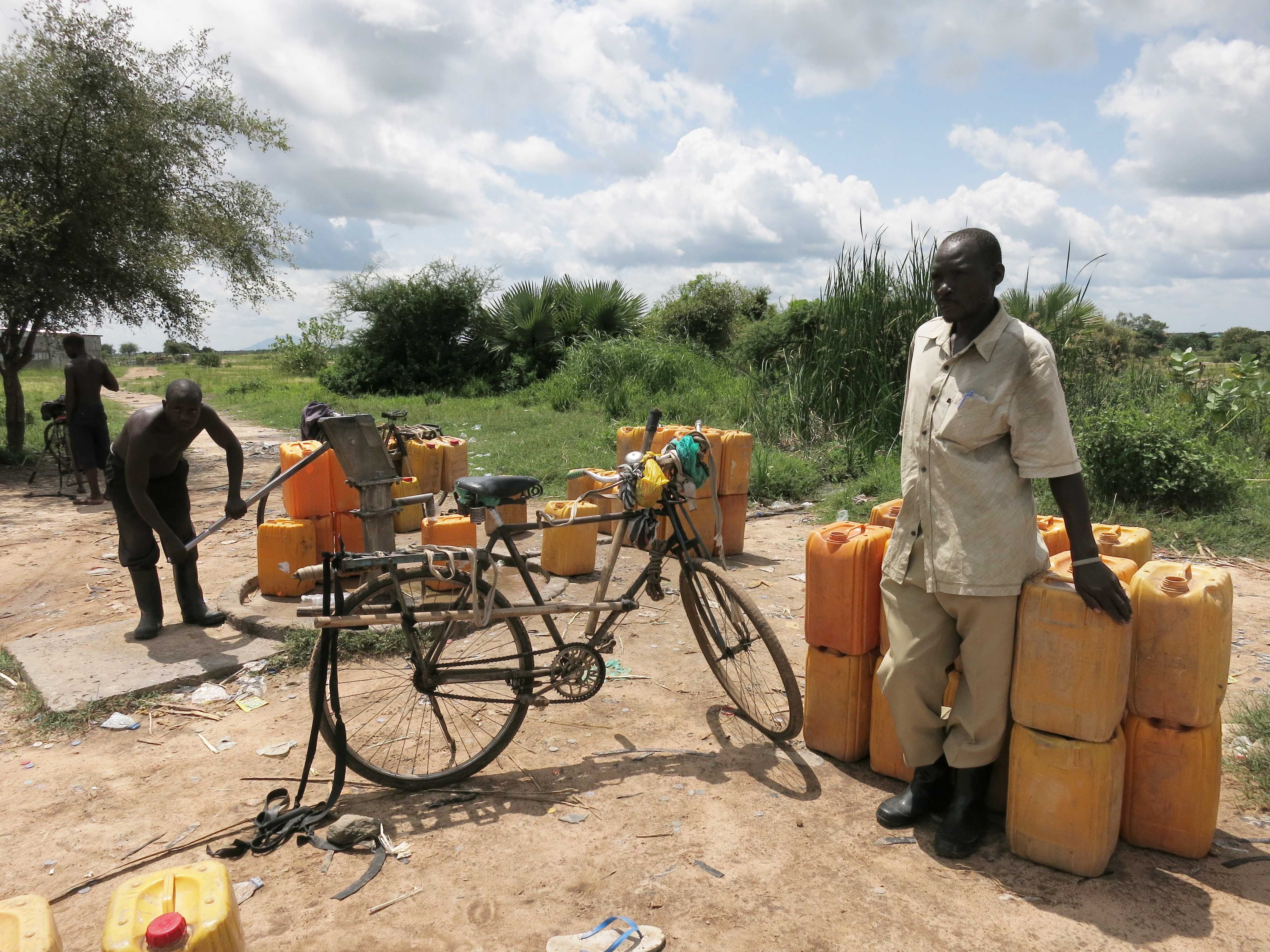
Men fill jerrycans with water in Gumbo. Source: Stella Madete/ Oxfam
To understand more about water and the important role that women play, I caught up with Hon. Sophia Pal Gai, the former Minister of Water Resources & Irrigation in the Republic of South Sudan and the first woman ever to hold this important position in a usually male-dominated field. Grab a cup of coffee, and let us dive in.
Andariya: Tell us a little bit about yourself.
Hon. Sophia: My name is Sophia Pal Gai and I was born in the beautiful town of Nasir in the Upper Nile State of South Sudan. I am a proud and happy mother of 5 children, two girls, and three boys. I hold a Master’s Degree in Transformational Leadership and Change from Greenwich University in the UK and a Bachelor’s Degree in Community Development and Psychology from Daystar University in Kenya. I started my political journey back in 2002 during my university days when I was active in women’s empowerment programs of the Southern Sudan Relief Association (SSRA) which was the relief wing of the SPLM movement. I was also actively involved with the South Sudanese Women Association in Nairobi (SWAN). Both SSRA and SWAN played a very important role in empowering women, giving them a voice and facilitating their political participation.
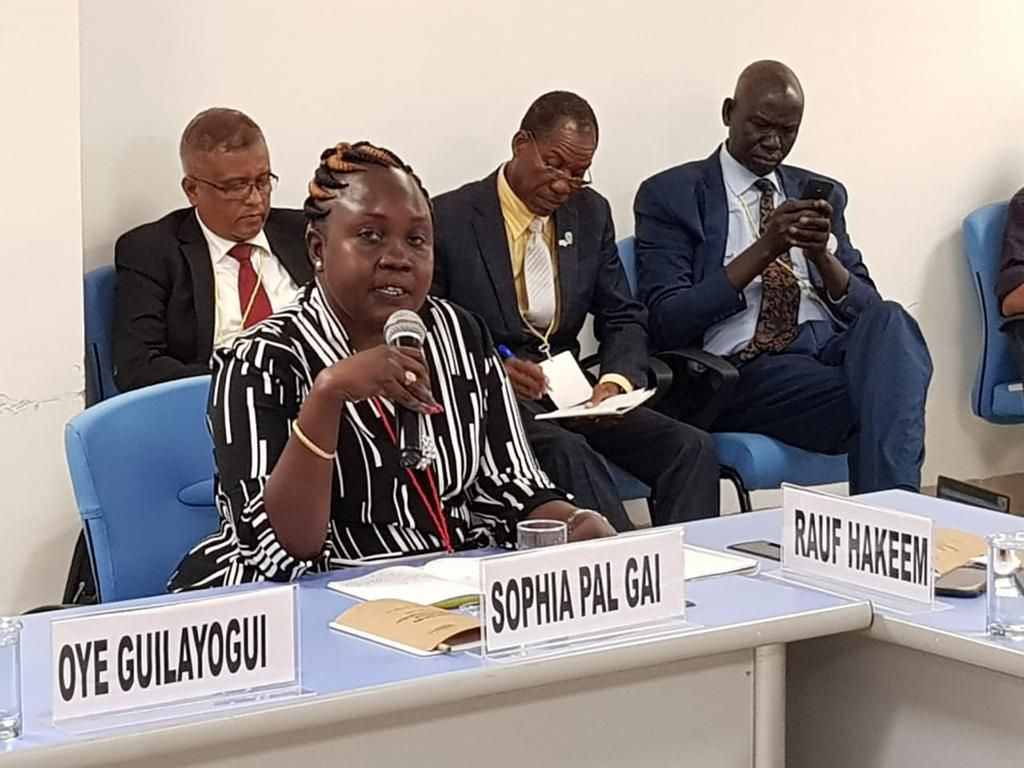
Hon. Sophia Pal Gai making deliberations during a meeting. Source: Sophia Pal Gai
Andariya: Tell us more about SWAN’s role in empowering women, including you.
Hon. Sophia: SWAN provided a platform that transformed many South Sudanese women- living in exile and those at home- during the civil war. Despite the limited opportunities women had due to the war, like the lack of formal education and skills, SWAN empowered women to be politically conscious and to advocate for their rights, gender mainstreaming, women's health, Gender-Based Violence, girl child education, and economic empowerment among others.
I was fortunate to play a role in the IGAD peace negotiations in Kenya that brought an end to the 25-year conflict between the SPLA/SPLM and the Sudan government. Together with other women we presented a position paper and aired out our political views at the negotiation table covering issues that are critical to women such as women's right to life, peace and security, health services, access to information, and humanitarian assistance. The issues we aired and others were included in the peace agreement. A big win for women also included securing the 25% affirmative action quota in the peace agreement for women's inclusion in all government spheres. My student activism days also included advocacy for the withdrawal of Canadian energy group Talisman which had been subcontracted by the (then) Sudan Government to drill for oil in Western Upper Nile State during the civil war. Our advocacy mounted a lot of pressure and resulted in the group selling its stake in the controversial oil project and eventually pulling out from Southern Sudan.
Andariya: How did you actively get involved in national politics?
Hon. Sophia: My first assignment after the signing of the Comprehensive Peace Agreement (CPA) in 2005 was in the commission of war disabled, widows, and orphans. In 2008, I joined the SPLM Southern Sector Secretariat as Secretary for Administration and Organization, leading us to the first general polls of the first ever democratically elected President of the Republic of South Sudan, parliamentarians and leaders on different levels across the 10 states and Abyei administrative area. This was a victory. I was part of the team that was involved in conducting the 2011 referendum for the people of South Sudan during which the majority of the population voted for an independent country, making South Sudan the youngest country in the world and the 54th country in the African continent.
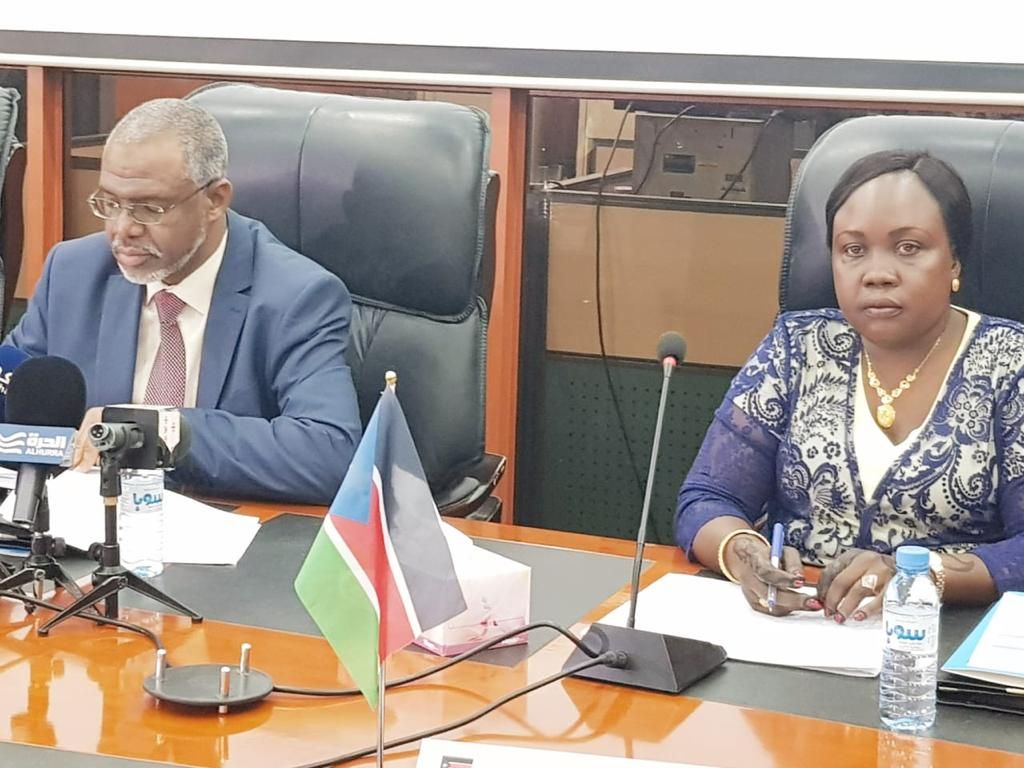
Hon. Sophia Pal Gai attending a meeting. Source: Sophia Pal Gai
As a result of the expertise that we exhibited during the referendum and the elections, we were recognized by the party leadership, and the President appointed me as a Presidential Nominee in the National Legislative Assembly in 2011 after our independence. While in Parliament, I served as a member of the water resources and irrigation committee and was elected as a Secretary General of the women’s parliamentary caucus before the outbreak of war in 2013. In 2016 I was appointed Minister of Water Resources and Irrigation in the Transitional Government of National Unity. In 2021 I was re-appointed as a member of the revitalized Transitional National Legislative Assembly and also got appointed as a member of the Pan-African Parliament of the African Union.
Andariya: What is the meaning of ‘WASH’ that is commonly used in the South Sudan water sector?
Hon. Sophia: WASH means programs geared towards the provision of quality water, sanitation, and hygiene in the Republic of South Sudan, in fulfillment of goal 6 of the UN Sustainable Development Goals (SDG 6).
Andariya: Why is WASH important?
Hon. Sophia: WASH programs are very important to the livelihood of the people. Water is life and without water, we cannot live, develop or prosper in all our atmospheres. We cannot farm, build settlements and infrastructures such as schools, hospitals, and roads, or progress in any economic activities. Having limited water points creates tension among communities. The water has to be safe to sustain better health.
With regards to sanitation, it is dignity for communities. Sanitation is important for our health and environment and it is essential for preventing diseases. More importantly, sanitation helps to keep children in school, especially girls. Hygiene goes together with sanitation and is more practical. In places where there are poor waste management systems, the environment gets contaminated making the areas unsafe to live in. This is mainly through river pollution, and poor disposal of dangerous chemicals, especially in the oil fields, which affect human beings, wild animals, vegetation, and water bodies. Hygiene is important.
Andariya: What careers are available for girls in WASH and what do they need to study to enter this field?
Hon. Sophia: South Sudan is rich and endowed with vast water resources. One can easily be part of WASH programs through Government led institutions, private, national, regional, and international organizations. WASH is a huge investment commodity that can transform lives and bring economic benefits to people if well managed.
There are many programs linked to WASH, therefore the desire to work with people, your passion and your commitment to seeing positive change in the community should be a priority. Some of the good programs that can pave the way for a career in the WASH sector are science courses like civil engineering, environmental studies, hydrology, ecology, public health, water diplomacy, transboundary water management, and geology.
I would like to encourage young girls to study developmental courses like water management, and also conduct research in related areas for the good of South Sudanese livelihoods.
Andariya: You worked at a very high policy level in this important sector as the Minister for Water Resources. What was your most memorable experience serving in a sector that is largely male-dominated?
Hon. Sophia: Seeing disadvantaged communities getting access to clean water and making little children happy was memorable. The work we did at the community level was more of drilling boreholes for communities in very dry areas, making dykes in Eastern Equatorial to conserve rainwater for cattle and small scale agriculture. We also trained communities on the importance of accessing quality water, sanitation programs, water management, and environmental hygiene that protects communities from both solid and liquid waste in big cities. I spearheaded efforts aimed at the protection of rivers and wetlands, besides engaging on regional and international platforms on water issues in the Nile Basin Initiative on Transboundary Water and water geopolitics with Nile Riparian Countries.
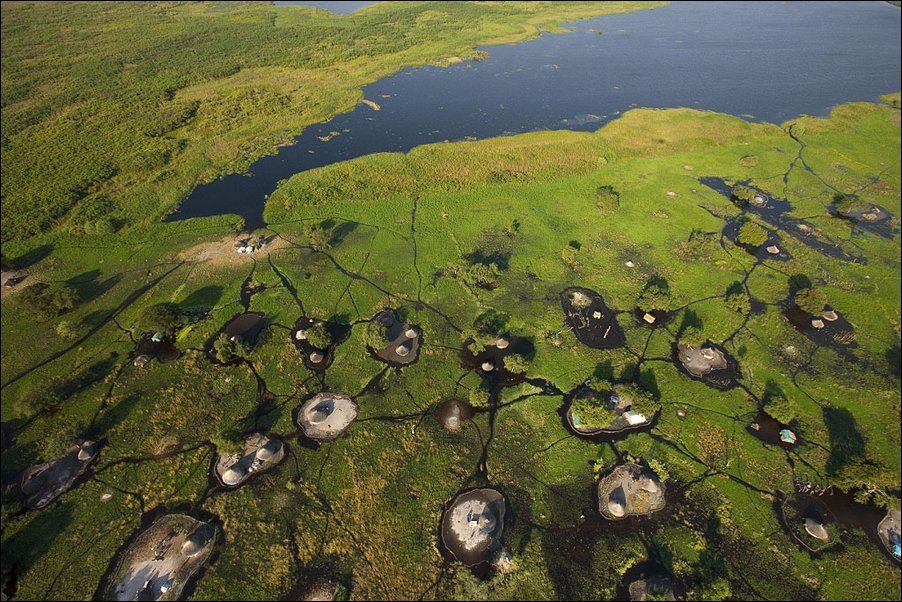
South Sudan's Sudd wetland. Source: Wikimedia Commons
Andariya: What efforts were put in place to ensure sustainability and growth in South Sudan?
Hon. Sophia: At the local and national level, we encouraged women’s participation in water management in their communities, including nonrevenue collection. As a Ministry, we successfully ensured the passing and implementation of the Water Act as a regulatory framework to manage the usage of water in the Republic. We effectively developed policies on the Ministry's human resource management, employment, promotion, retention, procurement, and assets management. We also trained water technicians on water lab management as they managed water treatment plants in all 10 states.
Andariya: There has been a lot of public outcry on the issue of the dredging of the Nile. What is dredging and how can we get information on it so that we can make informed decisions?
Hon. Sophia: Dredging is excavating, cleaning, or clearing dirt in rivers, ponds, water catchments, or water tributaries. Literally, dredging is scooping out mud, weeds, rocks, sand, clay, or rubbish in water points or catchment areas, in order to deepen water flow and create channels for navigation or river transportation.
Dredging is not about stopping floods as many think, flooding occurs because of many factors as a result of climate change in many cases, hence dredging does not guarantee a stop to the risks of floods.
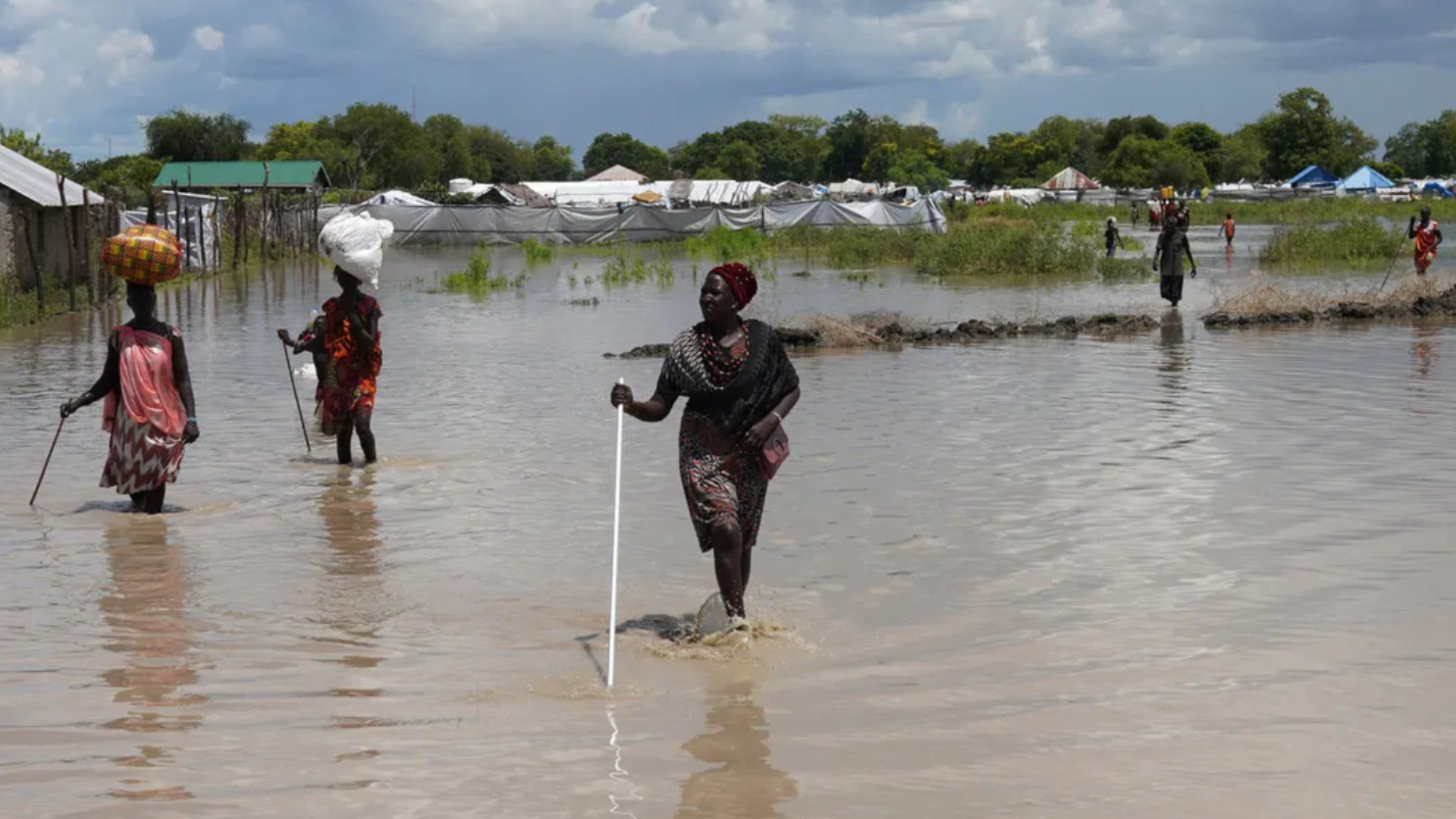
Women wade through flood waters after the River Nile broke the dykes in Pibor, South Sudan, Source: Andreea Campeanu/Reuters
Dredging is a national program, it should be done by the Government so citizens can participate and their opinion is key to the success of this program. Public consultation is needed from all the citizens whether among people who are affected or not. Before dredging happens, an environmental impact assessment needs to be conducted to see the pros and cons. Policymakers at the Executive or Parliamentary level need to be well informed through accurate research analysis that needs to be done by an independent body, and then make an informed decision on the best practices to help in fighting floods, river transportation, and the Jonglei canal among others.
Ladies and gentlemen thank you for joining us on the couch for this inaugural series of On the Couch. See you next time.
